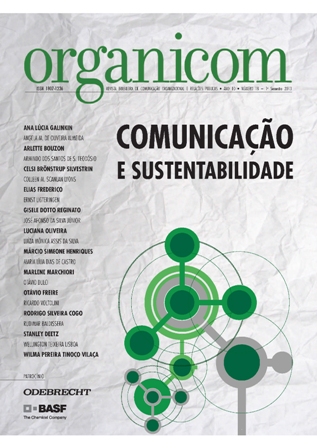Governing the “white space”: development, identity, and dynamic processes for increasing sustainability and social responsibility
DOI:
https://doi.org/10.11606/issn.2238-2593.organicom.2013.139168Keywords:
Cross-Sector governance. Nossa Ilhéus Institute. Bahia socialvalues, decision-making processes. Interaction designs. Participatoryplanning. Networks. Public participation. Democratic governance.Abstract
Sustainability and social responsibility increasingly require ecological and social concerns like identity and quality of life to enter earlier and more deeply into the decision making process, especially intersector decisions. To accomplish this, new interaction designs and “governance” reforms are needed. This article explores a case in Southern Bahia, Brazil, where a new type of cross-sector governance mechanism holds promise for more effectively addressing pressing social, economic, and environmental challenges of the 21st century.
Downloads
Downloads
Published
Issue
Section
License
A submissão implica a cessão de direitos da primeira publicação à revista Organicom, sem pagamento. Os autores podem estabelecer por separado acordos adicionais para a distribuição não exclusiva de versão da obra publicada na revista (como colocar em um repositório institucional ou publicar um livro), com o devido reconhecimento de sua publicação inicial na revista Organicom.


